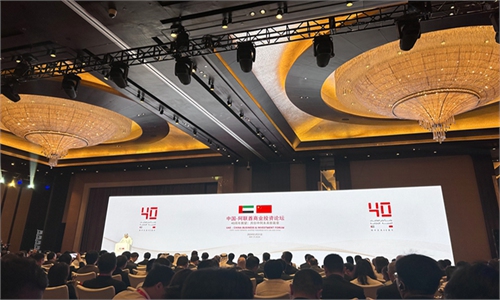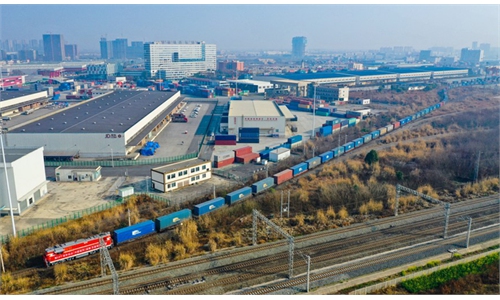
Illustration: Liu Xiangya/GT
Against the backdrop of multiple risks threatening the global trade recovery, rising protectionism and geopolitical interventions that challenge free trade cooperation, trade between China and Vietnam has maintained steady and robust growth.This trend underscores the significant dividends of strengthened regional economic cooperation, the advancement of free trade and the integrated development of industrial chains.
China is Vietnam's largest trading partner, and bilateral trade has exceeded $200 billion for three consecutive years. In the first eight months of this year, it reached $166.98 billion, a year-on-year increase of 19.2 percent. In terms of investment cooperation, from January to July this year, Chinese enterprises invested $1.84 billion directly in Vietnam, maintaining rapid growth.
The strong growth of China-Vietnam trade is attributed to the complementarity of the two countries in industrial and supply chains, as well as efficient connectivity in logistics and transportation. In particular, the transformation and upgrading of the manufacturing sectors in the two countries will strengthen the complementarity of their economies.
With the accelerated restructuring of the Asian industrial chain, trade in intermediate goods between China and ASEAN members like Vietnam is continuously increasing, bringing benefits to the economies of both sides.
Intermediate products account for nearly 70 percent of the trade between China and Vietnam, according to media reports earlier this year. This underscores their growing collaboration in industrial and supply chains. Along with other regional economies, China and Vietnam have developed a robust value chain, creating synergy marked by complementary strengths and the cooperative division of labor.
For example, the current booming mobile phone manufacturing industry in Vietnam has led to a significant increase in Vietnam's imports of intermediate goods from China, such as mobile phone components, lithium-ion batteries and liquid crystal display modules.
Chinese enterprises have markedly increased their investment in Vietnam in recent years, accompanied by a consistent improvement in quality. Notably, there has been a surge in investment across high-tech sectors, information and communication, new energy, green development, e-commerce logistics and other areas, highlighting significant potential for growth.
Expanding trade and investment cooperation with China, the world's manufacturing hub and the major trading partner of more than 150 countries and regions, has multiple positive implications for Vietnam's economic development and industrial system, including enhancing its competitiveness in the global economy.
For China, deepening economic and trade cooperation with Vietnam can help promote the green and digital transformation of China's trade while cushioning the challenges of escalating protectionism by certain countries.
The World Trade Organization has released its October update of the Global Trade Outlook and Statistics, which points out the risks threatening the recovery of global trade. The current global economic and trade environment is fraught with uncertainties, including escalating geopolitical tensions, a rise in trade protectionism and ongoing disruptions in supply chains. Steps are still needed to ensure fairness in global trade between developed and developing nations.
If China and Vietnam, as developing countries, can sustain positive momentum in trade and investment cooperation, they have the potential to jointly capitalize on the vast opportunities presented by new industries, driven by technological advancements.
Global trade has favorable prospects brought about by the green and digital transformations. The two countries can continue to increase investment in these areas, promote mutually beneficial cooperation and help each other make progress.
By increasing investments in these areas and fostering mutually beneficial cooperation, both nations can advance their respective interests while contributing to the overall health of global trade. Through a steadfast commitment to free trade and collaborative investment efforts, China and Vietnam can help create a more equitable and prosperous economic landscape for all.
The author is a reporter with the Global Times. bizopinion@globaltimes.com.cn



